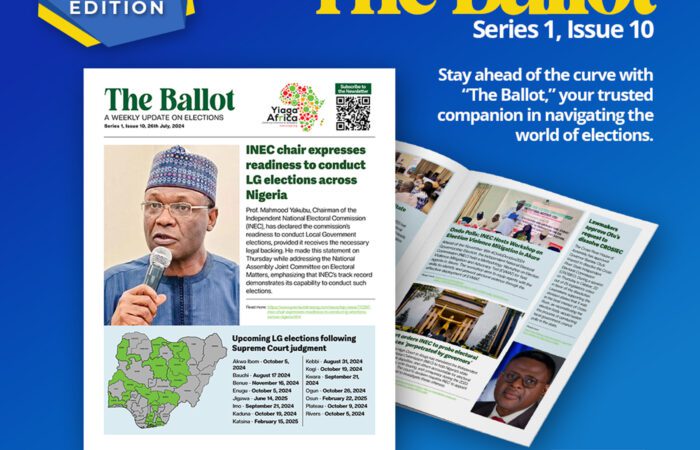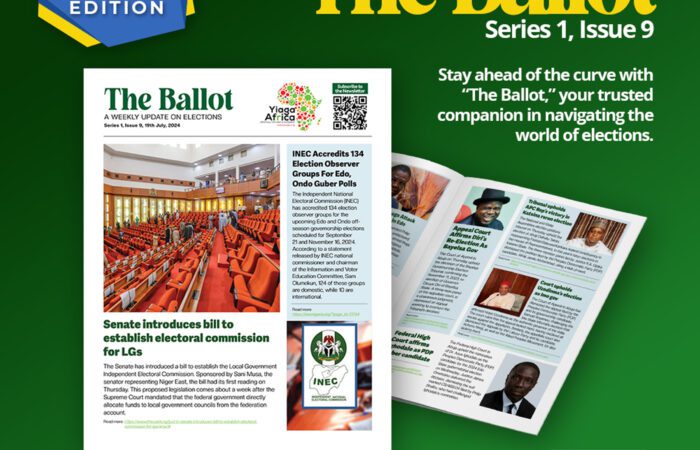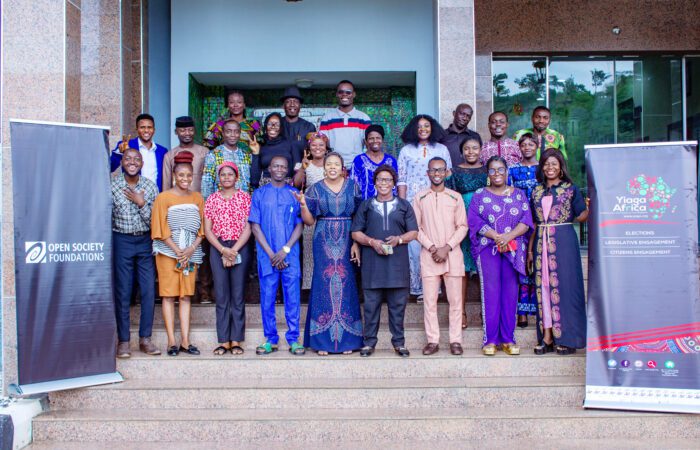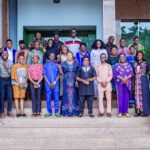In May 2019, the Independent National Electoral Commission (INEC) released the timetable for the governorship election in Bayelsa and Kogi states. The timetable highlights series of activities beginning with the notice of election scheduled for the 17th of August 2019 and immediately followed by the collection of the forms CF001 and CF002 which kickstarts the timeline for the conduct of the party primaries scheduled from 18th August to 5th September 2019. Party primary is a fundamental activity in the electoral process for several reasons. At first instance, the primary election is central because it is the process through which candidates emerge in a political party to contest in the elections, without which parties cannot field candidates in the elections.
In addition, the constitution of the Federal Republic of Nigeria does not provide for independent candidacy but recognizes duly registered political parties as the platforms upon which an individual can contest in an election. On another instance, primaries facilitate the right to contest in an election because the conduct of primaries is a major determinant of a political party’s access to the ballot. As reiterated by the supreme court in APC & Anor. V Senator Kabiru and Ors (Zamfara APC case); “where a political party fails to conduct primaries, then it is apparent that that political party cannot participate in the general elections. For this reason, all political parties have promulgated their constitutions and guidelines where the procedure for selection of candidates for general elections are provided.” As such, only parties that have duly conducted primaries in line with the Electoral Act and Guidelines for the conduct of primaries and within the timeline in the Election Timetable are granted access to the ballot.
Beyond the guarantee of the access to ballot, party primaries ordinarily are to set the agenda for the elections giving aspirants the opportunity to highlight the issues in their manifesto as they commence their campaigns for the primaries. Although this is not always the case, as political parties in Nigeria are yet to appreciate the importance of robust political debates on issues during elections as more focus is just on the politics of winning the party ticket. However, the ability of different aspirants to articulate the issues in their manifesto during the campaigns for the primaries enables the voter to understand what each candidate represents and make informed decision at the polls. As Nigeria’s democracy grows, there is more interest by citizens and Civil society groups in the party primaries which ordinarily are viewed by political parties as “party affairs”. The growing quest to observe the primaries is borne from the recognition of the role the primaries play in our electoral democracy and the fact that the shortfalls from the primary elections can hinder efforts targeted at achieving credible elections.
As revealed in the YIAGA AFRICA Watching the Vote observation reports on the 2019 Party Primaries, the monetization of the primaries and the non-compliance with existing laws and guidelines created an environment that enabled the increase in the reports of the purchase of the PVC, voter inducement and vote buying. In addition, was the incidents of electoral violence and the litany of pre-election cases that negatively impacted on the 2019 general election.
Accordingly, while Political parties may assert that the primary election is an internal political party, the reality is that the primary election informs as political culture which influenced by the practice within the party which sets the tone for political campaigns and has major impact on how democratic or otherwise the elections will be. A flawed primaries process enables a vulnerable electoral system exposed to election related conflicts, undermining the confidence in the electoral process and leaves a litany of aggrieved persons which as was the case in the 2019 general elections, leads to a plethora of pre-election cases court. This growing trend of flawed primaries is not sustainable, remains inimical to the development of our electoral process in Nigeria and at the least raises situations that creates distraction to the electoral commission in the preparation for election.
The Electoral Act in section 87 clearly states that ‘a party seeking to nominate candidate in the elections shall hold primaries for aspirants into the elective offices” which further states that the parties can adopt a direct or indirect primary. With the direct primaries requiring that all aspirant be given equal opportunity to be voted for. While for the indirect primaries, special congresses are to be held in the Local Government Areas with delegates voting for each aspirant and the aspirant with the highest votes cast declared the winner of the primaries.
With the timetable of Bayelsa and Kogi released, political party campaign activities towards the party primaries have commenced with the All Progressive Congress (APC) and the People’s Democratic Party (PDP) dominating the political scene so far. Other parties that are coming up into the race in recent times are: Social Democratic Party (SDP), Africa Democratic Congress (ADC), Accord Party (AP), Young Progressives Party (YPP), All Progressives Grand Alliance (APGA), and Peoples Redemption Party (PRP) with the potential for more parties as the primaries begin. Notably, certain issues already dominating the discourse on the primaries include the method of primaries adopted by the parties with the APC and PDP adopting indirect primaries and then high cost of nomination and expression of interest forms, especially by the APC and PDP in both states. The APC nomination and expression of interest cost N22.5 million with a 50% discount for female aspirants plus an additional administrative fee to be paid. While for the PDP, the cost for nomination is N20 million while expression of interest is 1million. For female aspirants in PDP the cost for nomination is 1 million naira with no requirement to pay expression of interest fee. For the PDP, about 21 aspirants and 12 aspirants had by the last week of July 2019 purchased their nomination in Bayelsa and Kogi states respectively.
More importantly is the role the electoral commission will be playing in ensuring strict compliance to the election timetable and the Guidelines for the conduct of primaries. The role of INEC to monitor political party primaries requires that each party be assessed by their compliance with the required procedures and the provisions of the Electoral Act. The Supreme court’s decision on the Zamfara APC case is a call to political parties and their leaders to review their party processes and commit to duly conducting democratic party primary elections, and as urged by the court; to “play the game according to the law and guidelines which they themselves have made.”
Possible Issues to look out for in the party primaries include:
Political Exclusion: high cost of nomination forms by both the APC and PDP remains worrisome as it maintains the trend of money determining the aspirants in a primary rather than qualification, capacity, competence and manifesto for the candidates. The cost of nomination is therefore the first screening grounds to exclude on grounds of financial strength especially for young aspirants and women.
Commercialization of the votes: Beyond the cost of nomination is also the role money will play in determining the votes of the delegates. With money becoming a determining factor already, the cost of a delegate’s vote will not be decided by the delegates conviction of an aspirant capacity but in his/her interest in bargaining the best price for the vote. The cost for each vote may be a huge burden on aspirants with less financial strength.
Intra-Party Conflict and threat of Electoral Violence: Both the APC and PDP have opted to adopt the indirect primaries for their party primaries with different aspirants in the APC for instance, questioning the decision for the process of primaries adopted by the party leadership. Beyond that is the wrangling’s already existing within the parties in the pre-primaries phase already creating a politically tensed atmosphere. The ability of the party leadership to manage and balance the interests for different top individuals seeking to clinch the party ticket will be a significant factor in quelling post-primaries conflict. In addition, the willingness to comply and the level of compliance by the political parties with the party guidelines, INEC Guideline for the conduct of Primaries, the Electoral Act and conducting transparent primaries will play a significant role in reducing the tendency of violence during the primaries, post-primaries conflict and also the number of pre-election matters in court.
Troubled times for women in politics- The primaries for the different political parties will also be determining the number of female candidates to contest in both elections. The APC and PDP have only 1 female aspirant each, but as more parties plan for their primaries, there may be hope that more female aspirants will contest. However, the question is whether we will have women emerging as candidates in both states from parties contesting in the election. Will Political parties be willing to support female candidates in the 16 November 2019 governorship elections in Bayelsa and Kogi states?
Cynthia Mbamalu is a devoted Human Rights and Gender advocate and Program Manager of YIAGA AFRICA






